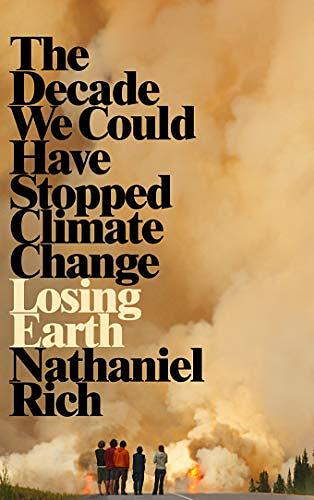內容簡介
內容簡介 美國知名作家Nathaniel Rich以「失去地球」為主題,探討對抗暖化關建的10年回顧1979年當時科學家就早已發現氣候變遷將會對地球帶來何種影響,甚至可提早阻止其發生。但經過30年後的現在,曾經擁有機會阻止一切災難的我們,很明顯正在品嘗失敗的苦果。美國作家Nathaniel Rich耗費一年半的時間研究為何人類未能阻止氣候暖化,儘管1979至1989年間,科學家、環保人士和政治人物早已致力發出警訊,讓大眾認知氣候變遷的危機與恐怖並提早拯救地球。這篇由紐約時報雜誌正式刊出的《失去地球》專題,堪稱可比擬作家瑞秋‧卡森的《寂靜的春天》和韓約翰的《廣島》,深入追蹤報導過去10年間當人類首次面臨氣候變遷的原因和危害時的內幕,以及唐獎永續發展獎得主詹姆士‧漢森博士如何在30年前的美國國會聽證會上,以科學數據指出氣候變遷已經開始發生的警訊,但最關鍵的10年卻未做任何補償,直到2016年地球日聯合國共156個國家才簽署巴黎氣候協定。Rich不僅想以此告誡人們早已失去拯救地球的最佳機會,更以許多科學及文本佐證人們該如何正視氣候變遷的重大危機,將全球暖化的威脅以量化數據呈現,不遺餘力的倡導有意義的行動與解決方法。 By 1979, we knew all that we know now about the science of climate change – what was happening, why it was happening, and how to stop it. Over the next ten years, we had the very real opportunity to stop it. Obviously, we failed.Nathaniel Rich’s groundbreaking account of that failure – and how tantalizingly close we came to signing binding treaties that would have saved us all before the fossil fuels industry and politicians committed to anti-scientific denialism – is already a journalistic blockbuster, a full issue of the New York Times Magazine that has earned favorable comparisons to Rachel Carson’s Silent Spring and John Hersey’s Hiroshima. Rich has become an instant, in-demand expert and speaker. A major movie deal is already in place. It is the story, perhaps, that can shift the conversation.In the book Losing Earth, Rich is able to provide more of the context for what did – and didn’t – happen in the 1980s and, more important, is able to carry the story fully into the present day and wrestle with what those past failures mean for us in 2019. It is not just an agonizing revelation of historical missed opportunities, but a clear-eyed and eloquent assessment of how we got to now, and what we can and must do before it's truly too late.
